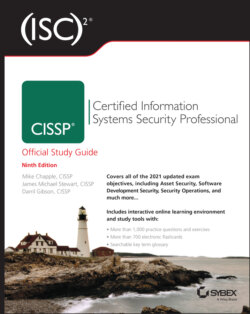Читать книгу (ISC)2 CISSP Certified Information Systems Security Professional Official Study Guide - Mike Chapple - Страница 231
Cross-Border Information Sharing
ОглавлениеGDPR is of particular concern when transferring information across international borders. Organizations needing to conduct transfers between their subsidiaries have two options available for complying with EU regulations:
Organizations may adopt a set of standard contractual clauses that have been approved for use in situations where information is being transferred outside of the EU. Those clauses are found on the EU website (ec.europa.eu/info/law/law-topic/data-protection/international-dimension-data-protection/standard-contractual-clauses-scc_en) and are available for integration into contracts.
Organizations may adopt binding corporate rules that regulate data transfers between internal units of the same firm. This is a very time-consuming process—the rules must be approved by every EU member nation where they will be used, so typically this path is only adopted by very large organizations.
In the past the European Union and the United States operated a safe harbor agreement called Privacy Shield. Organizations were able to certify their compliance with privacy practices through independent assessors and, if awarded the privacy shield, were permitted to transfer information.
However, a 2020 ruling by the European Court of Justice in a case called Schrems II declared the EU/US Privacy Shield invalid. Currently, companies may not rely on the Privacy Shield and must use either standard contractual clauses or binding corporate rules. This may change in the future if the Privacy Shield is modified to meet EU requirements.
In some cases, conflicts arise between laws of different nations. For example, electronic discovery rules in the United States might require the production of evidence that is protected under GDPR. In those cases, privacy professionals should consult with attorneys to identify an appropriate course of action.
The Asia-Pacific Economic Cooperation (APEC) publishes a privacy framework that incorporates many standard privacy practices, such as preventing harm, notice, consent, security, and accountability. This framework is used to promote the smooth cross-border flow of information between APEC member nations.
